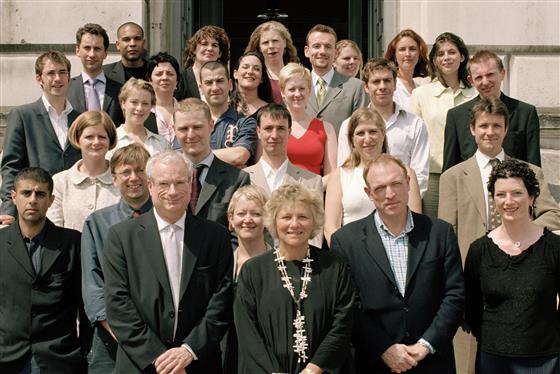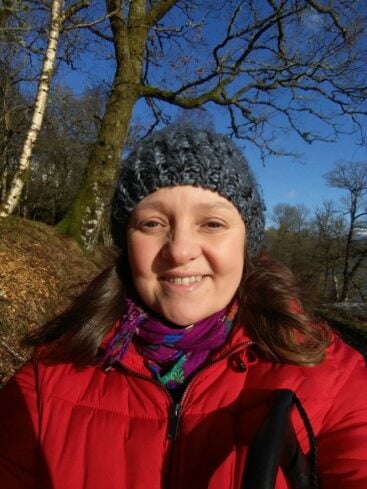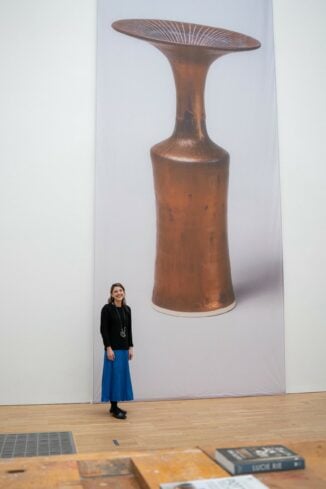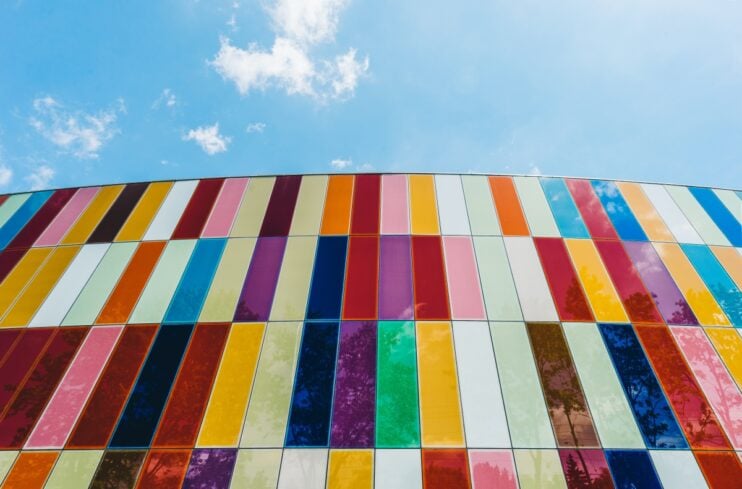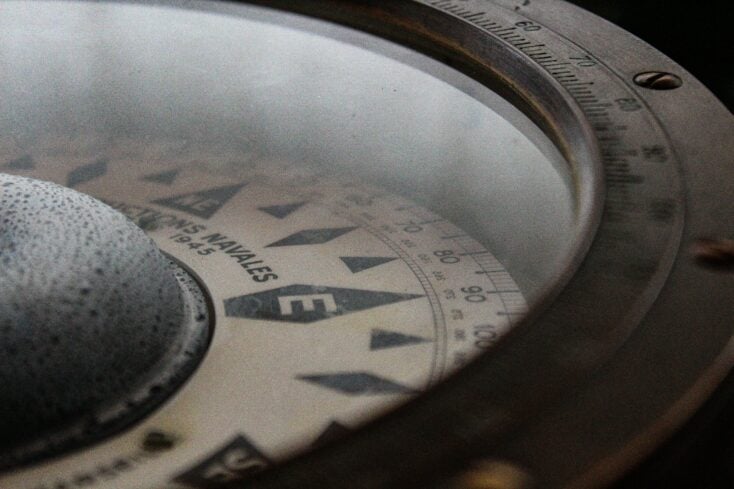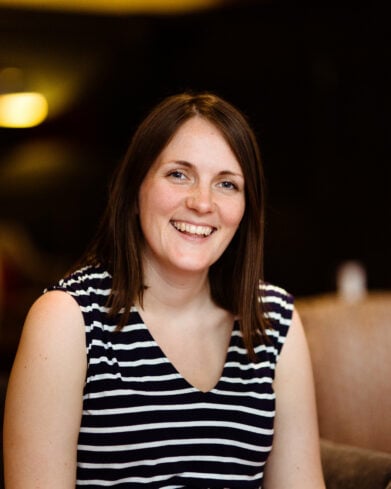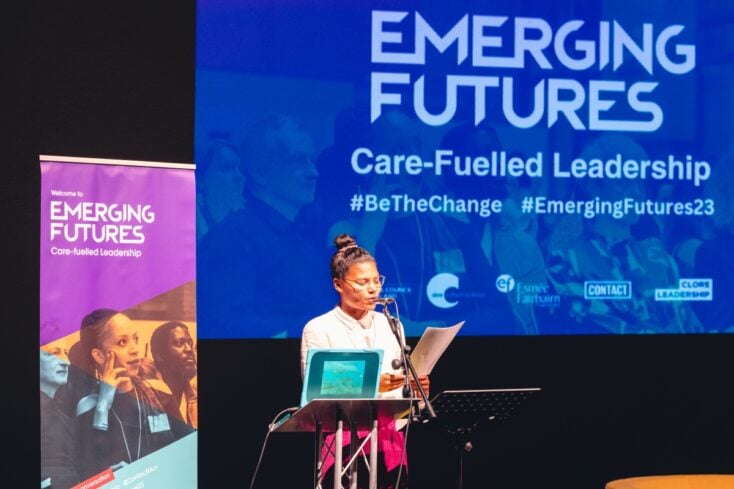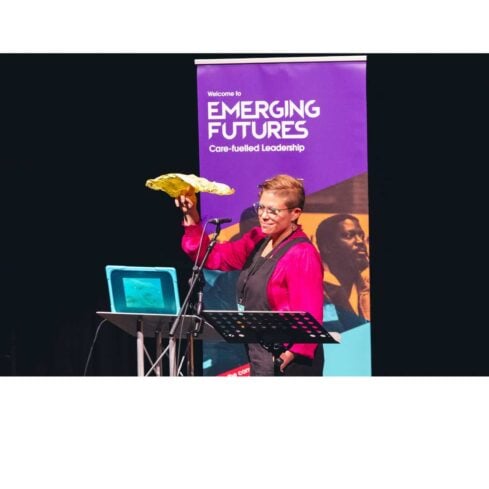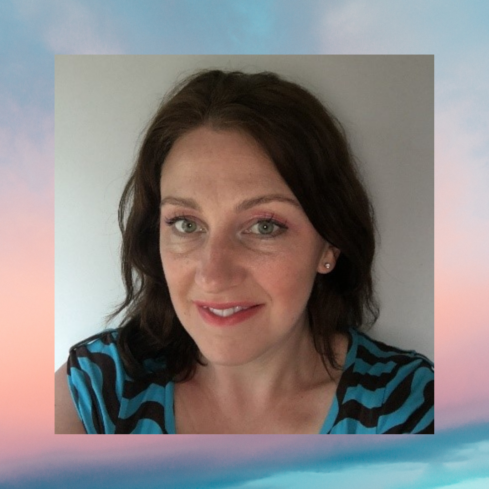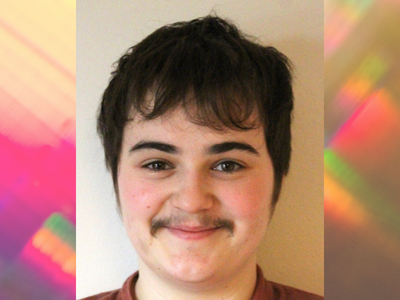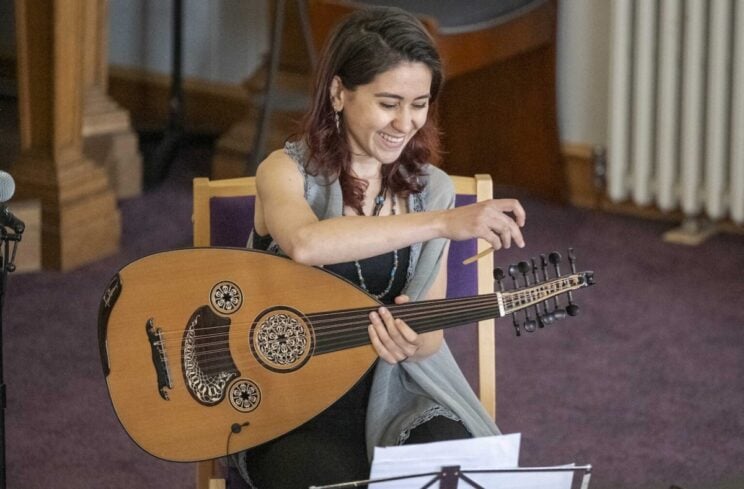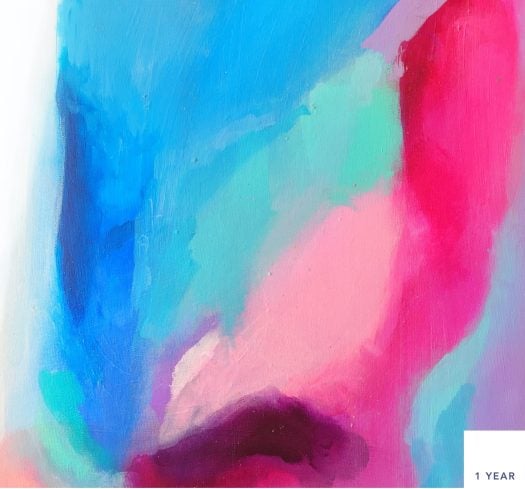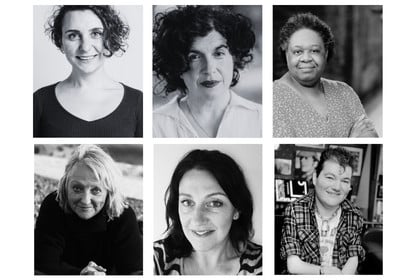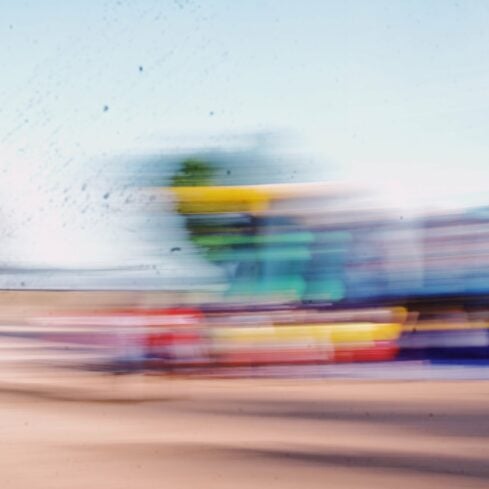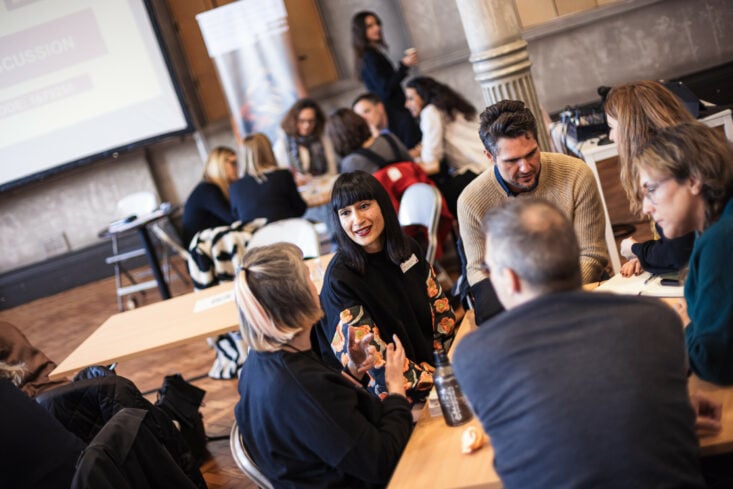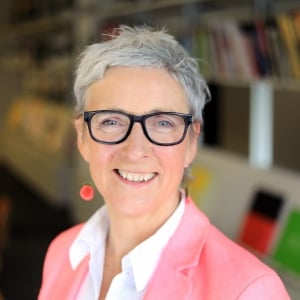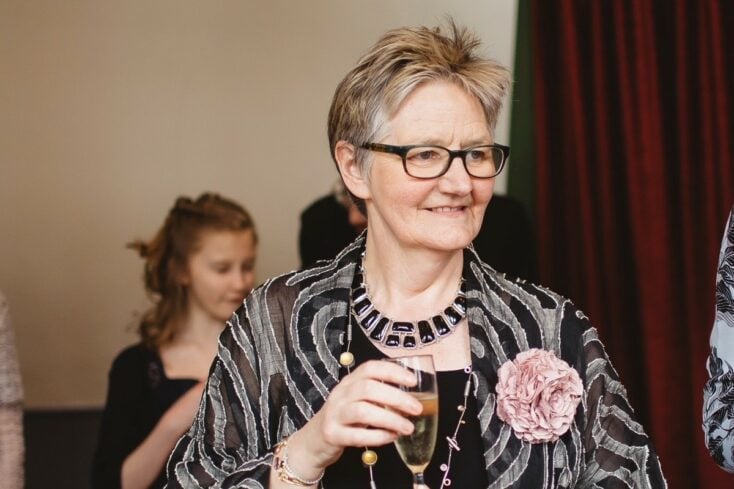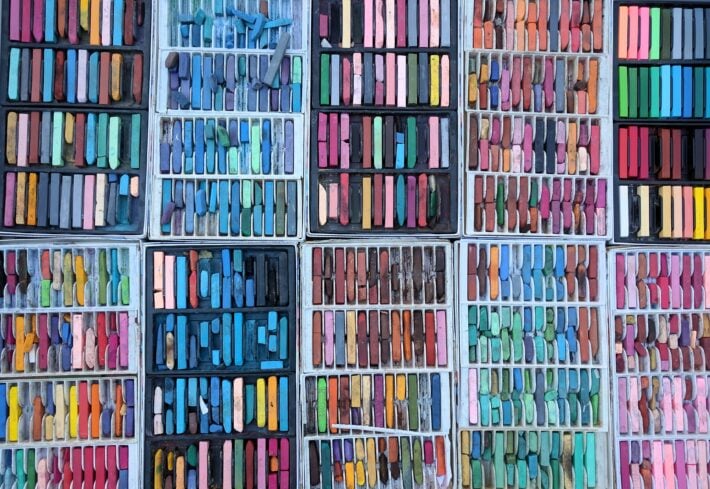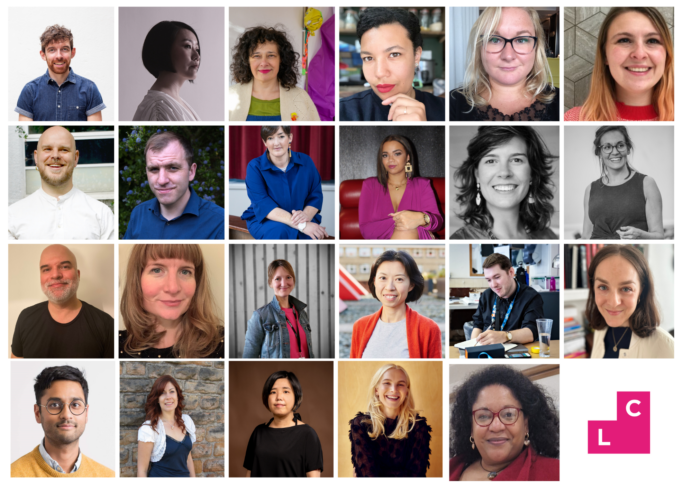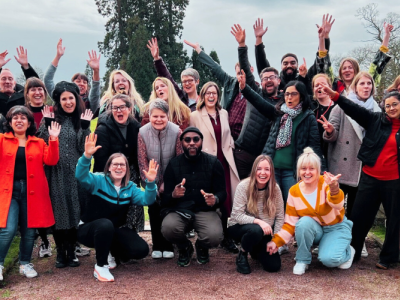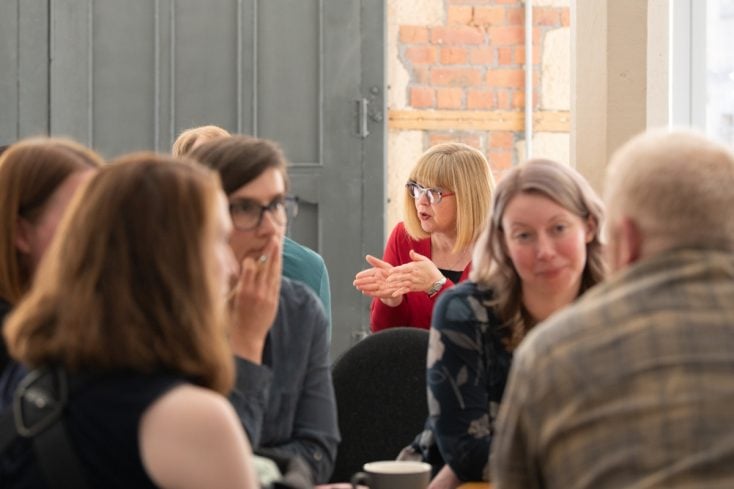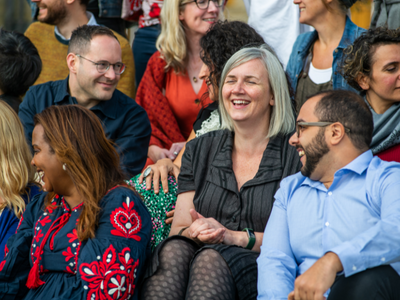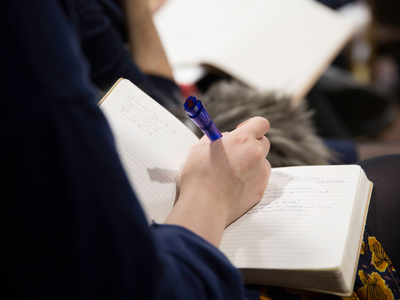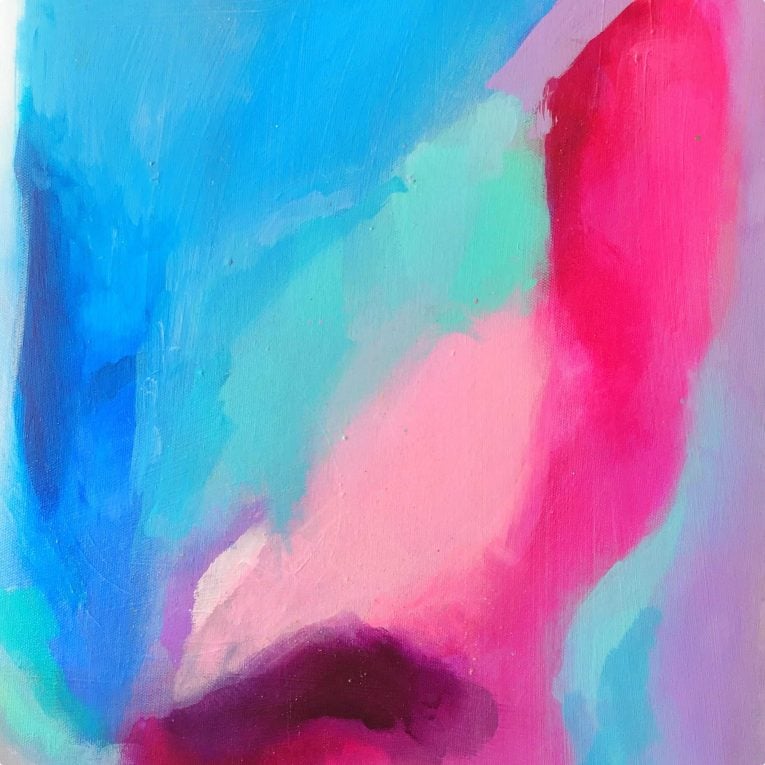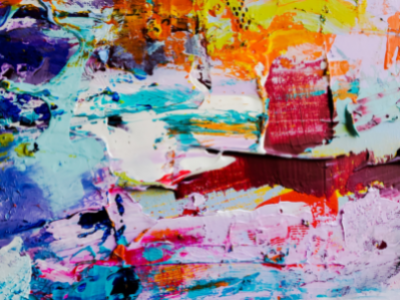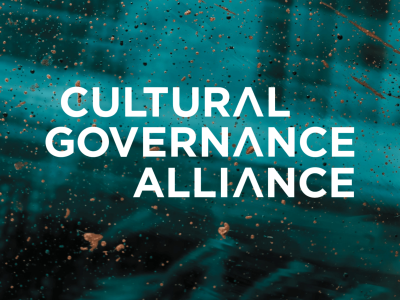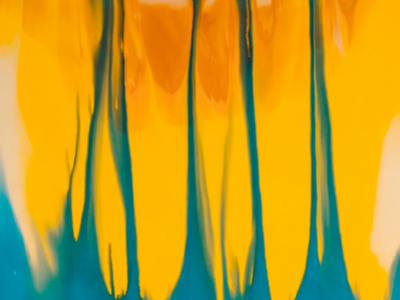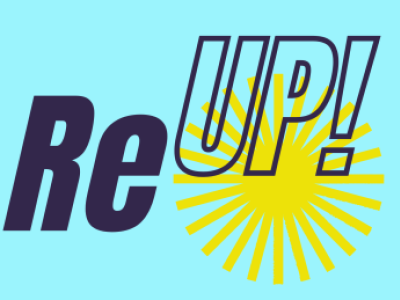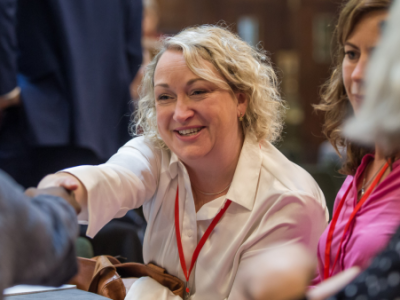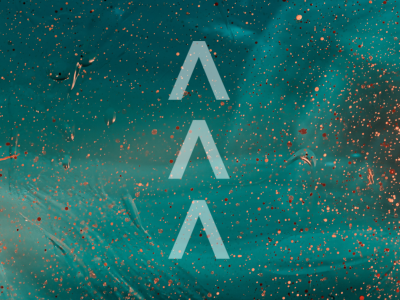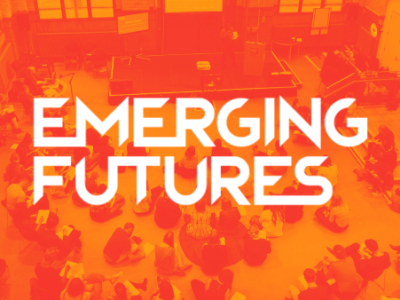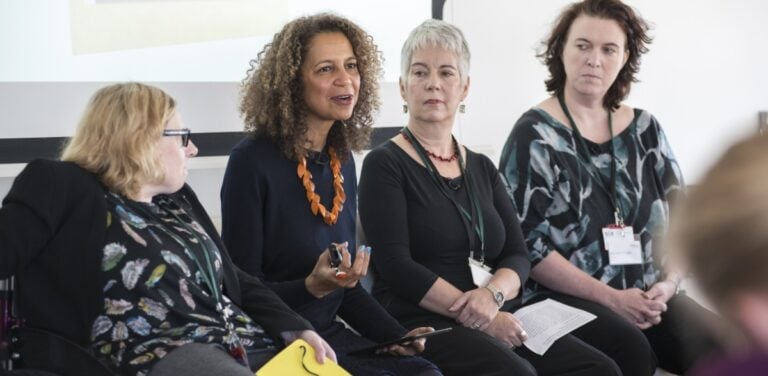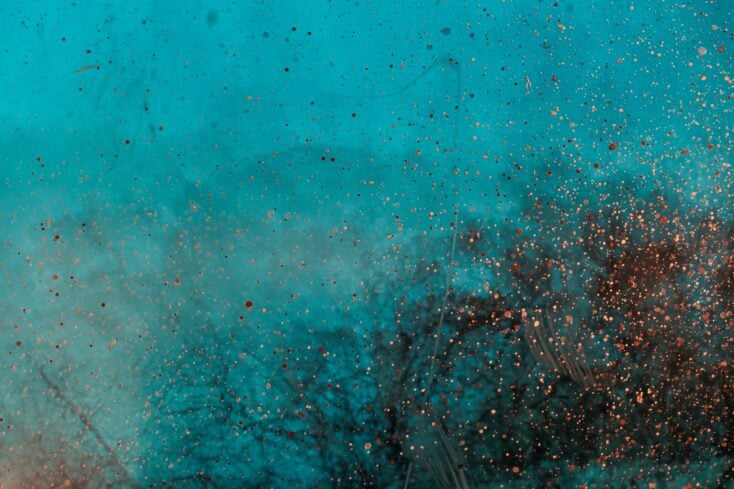The Early Adopters
Ten years after their Clore Fellowship, the inaugural fellows look back and look forward to what they’ve learned from their experiences on the programme.
Just over ten years ago I was lucky enough to be an inaugural fellow on Clore Leadership, the UK’s flagship development scheme for leaders of the cultural sector (I later found out I was the first person they ever interviewed. I’d love to say it was downhill all the way for them, but with other alumni from our year being the likes of Maria Balshaw, Axel Ruger, Moira Sinclair, Erica Whyman, Jacqui Riding, Kathleen Soriano and a host of high achieving, super smart folk, it’s truer to say that I’d got in by beginner’s luck!).
Today is the birthday of one of my fellow Fellows: coach, good friend and the first person I turned to when I returned from my sabbatical in 2012: Sara Robinson. Sara is quietly, persuasively dynamic and authoritative. Of all of the 25 or so fellows that we shared time with, it was Sara who foresaw the significance of our upcoming tenth anniversary, arranged for us all to meet (last November, 17 of us got together – as we have occasionally – to talk, share, drink and laugh. We laugh an awful lot when we’re together). But Sara didn’t want to leave it there. She saw it as a chance for us to look back and look forward to what we’d learned and what we wished to remember about the experience we’d had through the programme.
Sara (and Erica Whyman) led us to come up with just three questions, and answer them with our thoughts. Ten of us did, Erica compiled them all, then we did nothing. Our excuse was “we’re busy”.
So last week Sara, prompted by news that the 50th anniversary of Jenni Lee’s pioneering cultural policy framework white paper is almost here (25th February), and writer and theatre maker, Stella Duffy and others writing about it, she gave us a kick to share our thoughts. So, as our contribution to this timely debate, and as a “Happy Birthday” to Sara, and a “thank you” for her enduring tenacity, and her faith in community and collective voice, here they are (with Sara’s inspiring thoughts, rightfully, at the start).
Please feel free to cut and paste, embed, share, tweet (using Stella’s hashtag:#ArtsPolicy50), comment, reblog and play with our views. The more they’re shared, the more we’ll be held to account to work for the world we’ve envisioned.
The First Clore Leadership Fellows, Ten Years On
Ten years after the Clore Foundation launched its flagship leadership programme for the cultural sector, the first fellows have been reflecting on the last decade but also on the future for arts and culture in our society. Their headlines are:
• Great achievements on the small, large and international scale in ten years
• Very real challenges as a result of the financial crisis but “austerity” in the cultural sector set to continue
• Unfairness and injustices much more vivid in our society now than ten years ago
• The need to genuinely diversify our art, our artists and our audiences are felt very sharply
• A passionate belief that culture matters and should be central to our lives, free and available to everyone
Sara Robinson
In 1973 something switched on in me, when I went to see a magic show at the Roundhouse. Shadowy figures of hundreds of people, and a far away lit up stage – too distant to make out the trickery. But the magic was in the air; that sense of anticipation, of US-ness.
As humans we crave connection, and when done well, the arts can create connection like nothing else.
I asked Facebook contacts if and when they’d had a formative ‘creative connection’. This is what the first five said:
‘A visit by the RSC to Ardwick Leisure Centre in Doncaster – we couldn’t believe they would come to us’.
‘Playing Piglet on stage at Scarborough Spa aged 6’.
‘Growing up in Wales with the annual Eisteddfod festival of poetry and music.’
‘Being sent to the headmaster for a caning. At the crucial moment, Welfare State arrived looking for the playground. They performed King Lear to lure us into a bigger project they were doing in Barrow called King Real. I’ve been hooked ever since!’
‘The O’level teacher who blew my brains with a year long Kandinsky project’.
These moments exist because of imaginative teachers and a creative curriculum, of rural touring schemes and companies who work beyond the usual suspects, of national organisations behaving truly nationally and a thriving folk and amateur sector.
So here’s the thing: does the status and investment we give this work match the impact it clearly has?
I see entrenched notions of high and low art still dictating how we deploy public funds. I see agendas around ‘quality’, ‘excellence’ and ‘artist-led’ sidelining the participatory, the amateur, the radical and the populist. I see decision makers more lured by artistic ‘names’, the international, the ‘big and shiny game-changers’ than ever before. As inequality across the UK grows at unprecedented rates, I don’t want to be part of a sector that props up cultural hierarchies.
Of course we need a healthy mix of both; there is a place for big and shiny, as long as there is plenty of space for the smaller stuff that works so much harder for its money. They need each other.
Assumptions around ‘great art’ and ‘everyone’ being mutually exclusive are still (boringly) rife. We have lots to learn from those who cut through that falsehood by redefining what art is, who it’s for and where and how we make it: Streetwise Opera, Commonwealth, Slung Low, Mind the…Gap, Creative People and Places, 53million artists, Clean Break, National Theatre of Wales, and the best of those who curate outdoor spectacles and sustained grassroots initiatives which entice an enviously broad range of folk.
None of these organisations compromise on quality. They relish risk-taking, in the art they make and in the breadth of people they involve. Most don’t have an engagement department because it’s in the very fibre of what they do.
This has to be our direction of travel.
We can start now.
One of the best things I took from Clore, was the realization that asking great questions is more powerful than generating answers. Here’s some I promise to consider, every time I produce work:
- For whom could this project make connections?
- When’s it over, what could be different?
- How will equality be threaded throughout this work – on and off stage? How could you go about it resourcefully?
- Who in the world should engage with it? How will you make that happen? When they come, how will you make the environment as welcoming and exciting as possible, and what will you offer them next?
I hope you might too.
Ciara Eastell
1. What change do I want to see in the world in the next 10 years?
Reductions in local government finances in the past 3 or 4 years have been so challenging and the future looks no easier with most local authorities set to continue with significant programmes of cost reduction at a time of unprecedented and increasing demand for adult social care. For library services, this heady mix makes for a very challenging period.
As a Head of a large rural library service in Devon, I’ve been at the coal face in recent years, having to find ways of reducing the library service’s annual revenue budget by £3 million (a 30% reduction) over the past 3 years and now having to find an additional £1.5 million by 2017.
It’s no wonder that often libraries appear in the media to be particularly beleaguered. The national media message is relentlessly negative about libraries, focused on closures, volunteers and an apparent lack of public appetite for the services that libraries have to offer in an increasingly technological age.
But I have hope. I see every day, in my role in Devon and in my national role as President of the Society of Chief Librarians (SCL), that huge numbers of people are using our libraries for their everyday needs. People are getting online; connecting with others physically and virtually; making new things together; finding new jobs; setting up new businesses; accessing good quality health information and perhaps most importantly introducing young children to the joys of reading – all in safe, friendly, sometimes beautiful, often quirky spaces.
In the next 10 years, I’m very hopeful that libraries will play their part, as never before, as centres of enterprise, creativity and social justice. It will take strong leadership and tremendous tenacity to steer through at a time of such challenge but I’m hopeful that libraries will continue to thrive.
2. What change am I prepared to undertake which could make a difference from where I am standing?
Resilience is an oft cited word; management consultants make money out of it but actually for those of us living this life, the day to day reality of sticking with something that you truly believe in is tough. At times, the workload is so immense; the pressures so significant; the work-life balance so fictional that you just feel like giving up. There is an alternative to this, surely?
Sticking with what I believe in is something I must commit to. Despite all the hard work, I still get up and give every day my absolute all. Why? Because, after 20 years of working in libraries, I truly believe in their value, their essence, their potential.
So my change is no change. I know I make a difference locally and nationally to the world of libraries. I have skills, potential and ambition that would be lost to libraries if I turn away.
3. What (change) am I most proud of since becoming a Fellow?
Gosh! What a hard question. So many things. The most tangible has been helping to recreate an absolutely stunning public library in Exeter. One that is so beautiful, so perfect, already so loved It’s made me think about libraries differently. I’m so proud of its innate quality and very proud of the team who’ve made it happen and who welcome 2,000 people through the doors each and every day.
Matthew Peacock
1. What change do I want to see in the world in the next 10 years?
I think many of us who embark on Clore Leadership believe that the arts can change the world for the better. There have been more and more stories over the last 10 years that prove this to be true.
And in my particular area of interest, arts and social welfare in the UK, wherever you look there are examples of the arts playing a vital role: Scottish Opera and Gartnavel General Hospital’s work improving the wellbeing of cystic fibrosis patients; People United’s way of spreading kindness using the arts; Sistema England projects bringing music and social impacts to children in disadvantaged communities and Graeae Theatre Company and Unlimited’s work with disabled people.
As a sector we have also found better ways to demonstrate impact through strong research and yet this has all been achieved in an economic downturn where there has been a decrease in funding available. You could argue that we’ve been able to do more with less as a sector, but my suspicion is that the richness of the social welfare/arts scene is the result of the inspiration and tenacity of projects in the 1970s and 80s when the modern community arts movement was being created.
So over the next 10 years I hope we build on this and continue to demonstrate the value of arts in society – as something that heals and enriches and makes us human. In social welfare, support workers and charities create support plans for individuals – this is like a jigsaw puzzle where the whole ‘picture’ of support is constructed by pieces such as health-care, education, family involvement, pastoral support etc. My dream over the next 10 years is that the arts is regarded as a piece of the jigsaw of support in as many contexts as possible.
2. What change am I prepared to undertake which could make a difference from where I am standing?
I pledge to carry on demonstrating (and helping others to demonstrate) that the arts can be an agent for personal and community social change.
3. What (change) am I most proud of since becoming a Fellow?
I am proud that, with help from Clore Leadership and many others, the work of Streetwise Opera to support people who have experienced homelessness make tangible changes in their lives has developed and strengthened.
When we embarked on this journey 10 years ago, I thought I was an imposter and would be ‘found out’ very quickly and sent packing. I was painfully aware of my shortcomings and didn’t feel like a leader. Now I know that leadership is not about being clever or confident – it is about being yourself and having confidence in your own abilities. So, cautiously perhaps, I can say that I am proud of myself (!) and to help other generations of Fellows believe in themselves.
Julia Twomlow
First question:
In ten years I want society’s mindset to have moved from disposability, overconsumption, short termism and dependency to a ‘craft’. mindset of valuing things more, consuming less, making well and making to last, sourcing locally, and taking personal/organisational/social responsibility for our impact. I think our cultural organisations need to lead the way in this change by testing models and setting the narrative. I think we also have a role to play in reskilling people and offering alternative ways of learning and passing on skills. I want to see a learning culture in the arts where we strive for the people we train and mentor to exceed our own achievements.
Second question
What change am I prepared to undertake? I am already doing it and planning to continue. I am trying to create an organisation that can stand on its own feet and that does not expect to be heavily subsidised but to generate significant income of its own without straying from its core purposes. I am willing to work beyond the mandatory sustainability requirements to try to create a model of good practice for saving money and reducing environmental impact. I am going to continue working on the apprenticeship agenda to help raise standards of training and skills levels in the UK (at a living wage) and to encourage learning by doing and openness to sharing skills/knowledge and supporting the development of others.
Third question
I am most proud of my work at the Leach Pottery – of having created a new model of organisation in the heritage sector that generates most of its own income through its sales and commercial activities, originates work of its own and supports the production of work that is of the highest standards and is busily training the next generation of craftsmen while still offering a unique experience for visitors. I am proud of having an organisation that lives its values.
Susanna Eastburn
Ten years ago, we were announced as the first cohort of Clore Fellows: a bold experiment – and a substantial investment – aimed at addressing the perceived need to create a new kind of cultural leader for the UK. We were photographed squinting awkwardly into the sun outside Somerset House, beneath a headline posing the portentous question: “Are these the arts leaders of the future?”
Ten years on, earlier this year, we met again and found ourselves asking the same question, but with our focus now on that future, on what changes we wanted to see and what changes we were prepared to make ourselves.
We could not have predicted the disruptive changes that have happened in the last 10 years, and we cannot predict anything about the future except that there will be more disruption to come. Some of this will be positive, as technology opens up new channels for freedom of expression,be it political or artistic. But our biggest opportunity – and challenge – as a sector will be to find the right place for culture given the huge crises the world is facing. We have critically reduced the numbers of over half of all living creatures on this planet in the last 40 years. The 85 richest people in the world are as wealthy as the 3.5 billion poorest. We must question art’s relevance in the face of such urgent issues.
What the arts and culture bring, uniquely, is a capacity for human expression, of opening up human potential to meet our complex needs as a species to reflect, to love our friends and family, to communicate and connect beyond purely transactional demands for food and shelter, to reframe our experiences and tell stories. Addressing that basic human right to culture, acknowledged internationally as part of the UN Bill of Human Rights, is what we do. However, we are at risk of losing our right to claim that ethical position through our lack of care about who our work is reaching out to. Despite our avowed best efforts, we have not succeeded in any significant expansion of the demographics of those benefiting from the arts and culture in this country. I/We commit, over the next 10 years, to opening ourselves up and placing a commitment to diversity at the core of our work. We accept that this will mean change in how we organise ourselves and the kind of work we present. In 10 years time, we want our audiences to reflect the world we live in.
Nicholas Merriman
What change do I want to see in the world in the next 10 years?
While a good deal has changed in the arts world in the last ten years, what has not shifted enough is greater equity in access both to the arts itself and to the arts profession. My PhD some 30 years ago (!) was all about looking at why people self-excluded from participation in museums and heritage. While there has been some progress in widening this participation there are still great swathes of the population who see most publicly funded manifestations of the arts as not for them. Principally these are people who are in lower socio-economic groups and/or suffering from health issues or other deprivations. It can be argued that such groups make an active choice not to participate, and instead express creativity and participate in culture in other, non-publicly-funded, ways. However, my experience has been that when barriers to self-exclusion are removed, people are highly enthusiastic participants in ways that can sometimes be completely transformational.
In particular, there is now a huge opportunity to harness participation in the arts to the health and well-being agenda. There is increasing psychological and medical evidence of the benefits of arts participation in improving health and thereby taking a strong preventative role in what will otherwise become an increasingly strained health system as we all live for longer. By this way of thinking, it becomes even more important for the arts to become accessible to the less well-off sections of society.
Given this potential, I strongly believe that the current degree of exclusion of large sectors of the population is no longer tolerable. Whilst arts organisations are hugely diverse, and I do not believe that they should all be set the same quotas of target groups to reach, I would nevertheless like to see all organisations obliged to demonstrate that they are making progress on making their work accessible to a wider range of people and on opening up access to employment and board positions in the arts sector.
What change am I prepared to undertake which could make a difference from where I am standing?
Widening access is the main focus of my work in the Manchester Museum and those of us working in partnership in Manchester. We are now collecting better data on existing and potential audiences, investigating the nature of barriers to participation, and putting in place programmes to overcome them.
Because one of the major barriers is a deep-rooted cultural one, imbued by family, friends, neighbourhood and school, we are instituting a programme of placements for school students from low participation areas to introduce them to museums; working on a socially engaged volunteering programme with long term unemployed people, and working in partnership with the local hospital trust to engage visitors and patients. A strong programme of outreach activities accompanies these strands.
The additional change I am prepared to make is to take personal charge of these efforts and to ensure we have in place effective means of monitoring how we are doing.
What (change) am I most proud of since becoming a Fellow?
I’m proudest of working with the inspiration and support of my colleague, Clore Fellow (and wife) Maria Balshaw to create organisations which are the kinds of places we ourselves really want to work in. They are driven by a set of core values that everyone believes in, and are unafraid of risk-taking. They are smaller, following the financial downturn, but performing at a higher level by every measure that we have. People concentrate on working effectively rather than really long hours, and as a result they are happy places (measuring significantly higher than the mean in the University’s staff survey).
Tom Andrews
10 x 3
I quite like lists.
Some things that I think would be good: 1. interdependence + kindness as key policy imperatives, 2. smaller bureaucracy for smaller organisations, 3. not having to put life and creativity into neat categories (artform, type of organisation, beneficiary, audience targets) 4. Charlton Athletic in the play-offs, 5. funding not dependent on who you know, 6. how we live our values rather than money being the measure of success, 7. making space for quieter voices, 8. people in power that are representative of people not in power, 9. arts conferences that are creative, 10. tackling pressing global issues with boldness and imagination.
Some things I will try to do: 1. be brave with eloquent people, 2. be less competitive, 3. take lunch breaks and read a good book, 4. live in the present, 5. enjoy silence, 6. make less lists, 7. listen to gut feeling, 8. be ambitious for ideas not myself, 9. not feel I have to do it all, for everyone, now, 10. dream on trains.
Some things I am proud of in the last 10 years: 1. sometimes saying no, 2. being nice to my mum, 3. starting a charity about arts and kindness, 4. being quite friendly to strangers, 5. not always getting very frustrated when trying to persuade my children to do their homework, 6. keeping going without much sleep, 7. under 12s cup final triumph on penalties, 8. beginning to start the internal journey, 9. helping some people, 10. trying to do what I think is right.
Gavin Reid
1. What change do I want to see in the world in the next 10 years?
I want to see a world packed full of people fired up to fulfill their own personal ambitions, fully able to be who they want to be, leading the lives they want to live, discovering their own talents and their own personalities, dreaming the impossible and discovering their true
and brilliant talents. I want to see a world where diversity of views, passions and beliefs sit side by side with tolerance – of each and every one of us – where we all truly need each other so we can all flourish in a truly interdependent society.
I want to see a world where we all take time to listen to each other and everything around us, where we experience the moment we’re in, learning from each other and not be forever rushing into tomorrow. A world where we step back and give others space to be brilliant.
I want to see a world that once again fully values its many cultures. Where governments see the arts as essential to the lives of everyone, not an easy-to-cut luxury, something totally indispensable and of fundamental intrinsic value.
Within this aspiration, it would of course be wonderful to see music taking its rightful place as non-negotiable part of every school curriculum, with all of its many benefits recognised for what they are – essential to the development of rounded, creative, curious citizens in service of others.
And I really, really wish human beings could find a way of living together without killing each other.
2. What change am I prepared to undertake which could make a difference from where I am standing?
I would love to be able to focus more of my attention and effort on what I am doing now, enjoying the moment, being as good as I can be at any given time, helping others to fulfil their ambitions, rather than thinking about what I want to do next and what I want to achieve. It’s a challenge to be faced every day and a task that requires constant practice.
3. What (change) am I most proud of since becoming a Fellow?
Without a doubt, the biggest change that has taken place in my life since becoming a Fellow, which has profoundly changed my life forevermore and has made me proudest, has been becoming a parent – three times over! Has it changed me? Yes. Am I any good
at it? Not for me to say. Do I wish I was better at it? You bet!
Every day brings fresh challenge, joy, frustration, worry, anger, tears, laughter, success, failure, fear, expectation, guilt, hope and the most extraordinary sense of pride. Would I change it for anything? Never.
Professionally, I still have a feeling of enormous pride every time I am asked what I do for a living and I say, “I work for the BBC”. Can we really imagine a world without it?
Nii Sackey
10 Years (Broken Glass)
10 years ago I knew no better, than my life to date,
I set out there upon, to carve something great,
To empower young people to captain their fate,
Culture my clay.
Warned by father, who told me if you want the level of Tate,
The reality of race and class will forever stand between you and great.
That I said I will refuse to see,
“Transparency of privilege you cannot defeat”.
A ceiling so real as to challenge my tenacity
“Glass” he called it,
Then I said it could break,
He said see more of it,
See how much can you take.
So with a banner of hope and clear heart,
I embark from a life raised in concrete, harsh worlds apart,
For new lands of eloquence and ambitious thought.
Great people we met and mighty projects we wrought
With each day that passed I appreciated cultures wealth
But despite its outward fanfare
Inside I worried for its health.
Never were we given, everything we earned,
a band of young people
Hungry fire burned.
We created gold, the record is clear,
Intimidating rooms of culture
we embraced our fear.
Developing creativity in young people,
In order for paths to be turned,
Ideas churned and investment returned.
10 years I spent,
Convincing those of the value of youth
as if it was somehow it was a hidden truth.
10 years refusing to see class and race,
As a possible reason to the retardation of our pace.
10 years of championing the need for changing ways,
That we are missing the potential of younger ways.
Refusing to believe that skin and culture could really be a context,
To deny resources to the generation next.
Believing there was a rational to why 97% of our music money was for one sound,
Ignoring the feelings of ceilings or how that confounds.
Why less than 1 in 10 getting paid were diverse
A lagging of time, nothing more perverse.
So we kept on going,
Sitting on boards,
Building accords,
Consulting equality statements and diversity plans,
Never realizing that other culture past words is not really central to the plans.
Creeping thought that our current funding system is actually an elaborate hearse,
Driving our country culture to a cemetery of no reverse.
Comfortable with a yawning disparity
oh so great,
As to make a grown man cry at the lack of debate.
Tears really for the unassailable realization,
that if the Arts has the power, to do all we claim,
Then why would you not give everyone the same?
More importantly why not give those getting the least,
Just a few more morsels from such a glorious feast?
What would we loose?
More importantly, what would we gain?
A monoculture industry in this age,
Just seems costly and insane.
All the issues that we struggle to face,
Can be simply be resolved though parity of culture,
Sex, class and race.
Many will have already said, ignore what he says,
That I must find more evaluated ways,
To say, it feels like you mislaid the trust.
That really you are just waiting for my lack of lust,
Or perhaps for another black arts company about to go bust,
Like so many under conjecture now famined to dust.
So what do I hope to see in another 10 years?
A shift in our thinking the embracing of fears
I hope that hope reemerges,
is alive and bright
That people to understand
Only together we shed light
I hope to see rainbows and sunny skies,
Clouds of every hue, size and shape.
People who think more of the need,
Than just of the great.
Equality in our ecology,
Grace to know when we need to change,
A culture of creativity.
To be the change.
Investment for the future
Young people fastforward instead of this pause
To laugh that we even needed policies for diversity and equality clause
Values that work for all not the few.
To know everyone believes in the arts,
The way some of us do,
Through technicolour young people,
Encouraged by the great and good,
A jungle of hope, a rainforest and not just wood.
Most of all I hope to see,
Broken glass beneath my feet
Andrew Missingham
1. What change do I want to see in the world in the next 10 years?
If my life continues to be blessed, ten years from today I will be looking forward to celebrating my daughter’s sixteenth birthday in two days time.
I’d like the adult world she’s about to join to be better characterised by consideration of the long-view (both looking to the past, and to the future). This will mean that more decisions around her will be underpinned by their ability to sustain. Today, when it is considered at all, “sustainability” is seen through the lens of impact on the environment. I hope that in ten years not only all of our decisions will consider their environmental sustainability, but also sustainability will consider the future impact of human-centred decisions, based upon learning from the past. If we can do this, her world will be happier, safer and more equitable, (as inequality wastes talent and fosters resentment, fear, anger, unrest and ult
